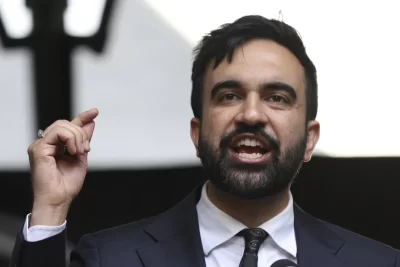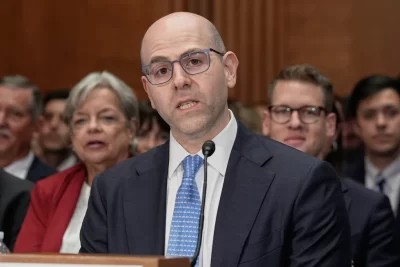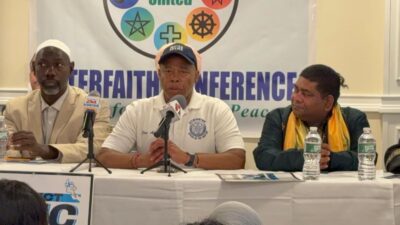
Within the past year, young journalists have produced investigations that led to the resignation of Stanford University’s president, the firing of Northwestern University’s football coach, and a school shooting graphic so striking that it led a veteran newsman to say, “I’ve never seen a better front page.”
All while making sure to get their homework in on time.
A news industry that has been shedding jobs as long as they’ve been alive, and the risk of harassment when their work strikes nerves hasn’t dimmed the enthusiasm of many college students — often unpaid — who are keeping the flame alive with noteworthy journalism.
“At the end of the day, journalism is a public good, and it attracts people who want to do service for others,” said Theo Baker, a Stanford University sophomore whose stories about faulty scientific research prompted a university investigation and eventual resignation of Stanford’s president, Marc Tessier-Lavigne.
Baker’s work, as a freshman, earned him a George Polk Award in journalism, the first time Polk had ever honored work in an independent, student-run newspaper.
The Columbia Daily Spectator in New York conducted a months-long probe that found toxic working conditions within the university’s public safety department. The Harvard Crimson tracked the money in an investigation into stolen funds at the Harvard Undergraduate Foreign Policy Initiative.
Students nationally are holding people in power accountable, said Jackie Alexander, incoming president of the College Media Association and director of student media at the University of Alabama-Birmingham.
“They are unafraid,” Alexander said. “They are digging deep. They are really living up to the values and principles of being journalists while also being full-time students.”
Charles Whitaker, dean of Northwestern’s Medill journalism school, admitted to being a little worried when he heard about the story that the Daily Northwestern was working on. Yet staff members were thorough and professional, taking care to corroborate the stories they heard, he said.
“I was incredibly proud of what the students did,” Whitaker said.
At Stanford, Baker’s story about Tessier-Levigne was only one aspect of the complex investigations he conducted about the world of academic research, winning him impressive acclaim.
Yet when you ask how his year has been, he says it’s been hell, adding an expletive for emphasis.
He’s been called out of class to learn of threatened legal action. Another nasty lawsuit threat came on the day after Christmas. Professors would pull him aside to say they were impressed by his work, but were afraid to be seen in public with him. One memorable post on a campus social media discussion about him said, “journalists are a cancer on society.”
Baker said he was harassed — including angry, middle-of-the-night phone calls — although, incredibly, it wasn’t his first time. He said he was threatened even before college because he’s the son of two prominent journalists, Peter Baker of The New York Times and Susan Glasser of The New Yorker.
With growing reports of student journalists being doxxed, ostracized on campus and otherwise harassed, the College Media Association is looking into ways to help them, Alexander said.
“Being a journalist is like being under a microscope,” Baker said.
Like most of her fellow University of North Carolina students, Emmy Martin spent a few terrifying hours in lockdown on Aug. 28 after a graduate student shot and killed his faculty adviser in a campus building and was on the loose before being apprehended. She was in a library and, as editor in chief of The Daily Tar Heel, spent part of her time reporting.





